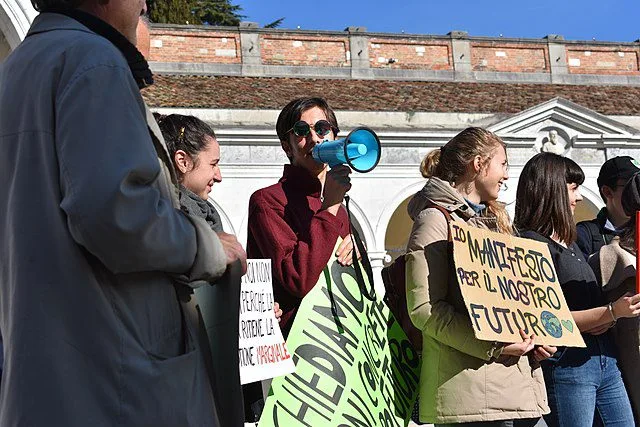“Direct air capture is expensive, unproven, and will ultimately make almost no difference in reducing climate pollution… Capturing just a quarter of our annual carbon emissions would require all of the power currently generated in the country.”
We need to stop fighting "green energy OR sequestration. It NEEDS to be AND. Trust the scientists who are asking for this.
Copying this from an earlier comment thread on the same topic.
Actually this solves a very important problem. If we stop all pollution and carbon emissions today the earth will still be heated up significantly for the next thousand years or so. Enough that life will be more than uncomfortable, we’ll have massive water shortages, widespread desertification, and wholesale extinctions of many plants and animals.
We need carbon sequestration if we want to control the damage already done.
No, what they are arguing is that sequestration is an illusion that has no practical effect. And that impractical effect can even be a negative one. They are saying “no, sequestration people shouldn’t get money for their BS”.
What they actually fear is that the process to build and operate a sequestration facility would actually result in net-positive emission.
If you read their argument in this context, AND is also unacceptable. So, OR in their mind.
Honestly, I feel like restricting the discussion to “green energy and sequestration” like you did can be a tactic by sequestration proponents. Likely the green energy part is not the entire demand by the green party, and the restriction feels as if it’s trying to turn the attention from the larger picture. Also, who are those scientists, and can you cite studies from the larger (scientific) environmental community who concludes that sequestration is a feasible solution?
We need to research it to know more. That’s what this funding is for.
The reason green energy is usually brought into the conversation is that while many sequestration strategies require nearly zero energy inputs, many do. What’s the point of cutting into the effectiveness of the solutions by emitting more greenhouse gasses? At least in my case the sentiment here is genuine, no alterior motives, it just makes sense. Can’t say the same for everyone, but big projects often make for strange bedfellows.
Green energy has had steady funding and advances for 30 years. Sequestration is largely still relegated to lifecycle studies and truly needs testing.
-
Evaluation of lifecycle of a popular solution, with calls for more study. https://nap.nationalacademies.org/catalog/26278/a-research-strategy-for-ocean-based-carbon-dioxide-removal-and-sequestration (news blurb with summary here: https://www.nationalacademies.org/news/2021/12/new-report-assesses-the-feasibility-cost-and-potential-impacts-of-ocean-based-carbon-dioxide-removal-approaches-recommends-u-s-research-program)
-
Report to US Congress with worthy citations and feasibility findings. https://crsreports.congress.gov/product/pdf/R/R44902
-
article from Yale with a good interview with a researcher with lots of solid citations https://e360.yale.edu/features/negative-emissions-is-it-feasible-to-remove-co2-from-the-air
There are more, but you get the gist. There’s a familiar pattern in these studies and interviews with scientists and academics- we need negative emissions, and every day we don’t have them we have even more work to do in the same time span. At the same time, we need to study this further because geoengineering will likely have far reaching impacts beyond what we primarily need.
Some of these projects are as simple as reforestation and/or biochar sequestration into rich soils. Some are moonshots like molecular pumps and nanoparticles lattices (charmingly being nicknamed the giant vacuum solution by MSM today). But over and over those studying it seem to agree we need more research and investment. That’s literally what is being announced in this article and everyone is acting like this money was ripped away from someone building a huge green energy plant. Realistically this isn’t how funding for projects and research works.
I don’t think they should get $1B investment when we’re supposed to reduce emissions by 100% in 3 decades, which in a simple calculus means 30% in a decade.
Am I right to think that those reports were from scientists who study sequestration? If so, the receiving end of the fundings will, of course, demand “more studies”.
We’re probably better off accepting the worst case scenario and ban fuel.
The “greedy scientists just want more money for studies” angle makes me an little uncomfortable since it is the same one used by the side arguing we shouldn’t be spending any money on green energy.
The fact that the fossil fuels industry supports this research is a way better argument, IMHO. Also, we do have these great carbon sequestration machines already. They are called trees.
No, I’m acting pointing out that OP cited the ones I specifically asked not to.
My request was to cite statements from the wider community, not the scientists who study carbon capture themselves. With the green energy you can find those easily from basically any era because it has clearly been a strong option to fight the climate change.
-
But you’d get way more bang for your buck if you put that money towards reducing carbon emissions.
Both are needed. Both. It won’t work with only one.
The problem is focus. This is a bit like a building flooding and breaking out the mop while gallons are still pouring in - you’ll need that mop eventually, but right now there are much more important things that need your attention.
That’s not a good metaphor. A better one would be:
“A building is flooding and you need to invent the concept of a mop. While you are plugging the leak, send one of your people to start working on creating a mop to use later, everyone in the room can’t be plugging the hole anyway.”
Sequestration tech isn’t there at the moment. If we wait until we we figure out green energy entirely, we will then have to wait again while we figure out sequestration.
We need to be doing both, but we need them to have separate budgets and separate people working on them, because otherwise, yeah, we’ll be in a bad situation where we are diverting green energy time/money into sequestration. The problem is that we are fighting against people who don’t want to spend any money on any of it. If the fossil fuel people want to work on sequestration instead of green energy, fine, let them. Hell, force them to. Pass laws making them be net-neutral on carbon and that can either be from shutting down plants or capturing everything they put out. If they don’t choose to shut down, they’ll spend R&D on capture, and we can use that tech more widely in the decades to come.
If the viability of a project is predicated on another breakthrough or scale up, that shouldn’t discourage doing research on it.
Research costs time, money and effort. If not carbon capture, any spare USD floating around is going to end up into the military industrial complex, banks, oil and pharma anyway.
The unproven technology has been a key focus of oil and gas lobbyists, who argue that fossil fuel companies can continue their planet-heating extraction activities if plants are built to remove the pollution they cause.
And that’s really all one needs to know; people who have made themselves rich as god don’t want to lose out on squeezing that last drop of profit out of fossil fuels.
Ok, so the fossil fuel extraction licenses are conditional on privately financed carbon capture systems operating which exceed the emissions from using whatever is extracted?
Not so fun when the mythical technology actually has to work, is it?
If you put money into it, the technology should improve. If you test it, the unproven will become proven. Just a dumb argument.
Seems like everybody like you wants to spend money without diligence when it’s the public money.
Proven methods of combating climate change are being ignored here. Hell, the government need not even invest in proven techs like wind farms and solar… they could put that money into modernizing the power grid and even that would be better than… whatever shit this is.
It seems absurd to me that we’re spending effort on reversing entropic processes (effectively unburning burned carbon by filtering it through a mixed atmosphere) when there are far more straightforward solutions involving not burning that carbon in the first place. Or, hell, even just putting carbon filters on the power plants.
Because the second law of thermodynamics applies here. It will always be more efficient, simpler, and cheaper to not release the carbon in the first place. And if we are not even doing that… What solution could direct air capture ever provide?
Proven methods of combating climate change are being ignored here.
No they aren’t, those things are getting investment too.
Opportunity cost exists, yes this money could have gone to solar power instead, but we need to know if it’s possible to do carbon capture at scale in addition to doing everything else because it’s the only way to possibly reverse what we have already done.
It’s next to impossible to disprove a scientific approach. We already know carbon capture has been ineffective. We’re already in the phase to reduce the funding and focus on proven methods. That’s what net-zero by 2050 means.
What’s likely to happen with carbon capture is that we supply money for decades if not centuries because it’s hard to disprove.
The unproven technology has been a key focus of oil and gas lobbyists, who argue that fossil fuel companies can continue their planet-heating extraction activities if plants are built to remove the pollution they cause.
Sure, but we’re not against pollution scrubbers because it allows companies to keep making goods while removing the downside associated with them. If the bad thing is fully counteracted then I’m not mad about how much bad thing happens during their production process. We can’t just dislike it because scummy businesses like it, it deserves the research to see if it can help.
A full removal of fossil fuel based technology from every country in the world in time to prevent major global warming isn’t going to happen, and we’re already so far down the road that it would be very good if we had a way to reverse the flow of carbon into the air, in addition to other measures.
If it doesn’t end up working, it doesn’t end up working, but there is good reason to try.
That one possible catch to carbon capture projects is that it could also inadvertently give a justification for putting more carbon in the air.
It isn’t inadvertent. The primary purpose of carbon capture projects is to provide green cover for fossil fuel companies.









